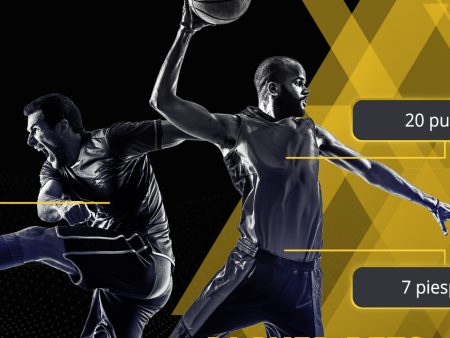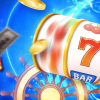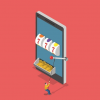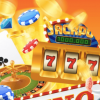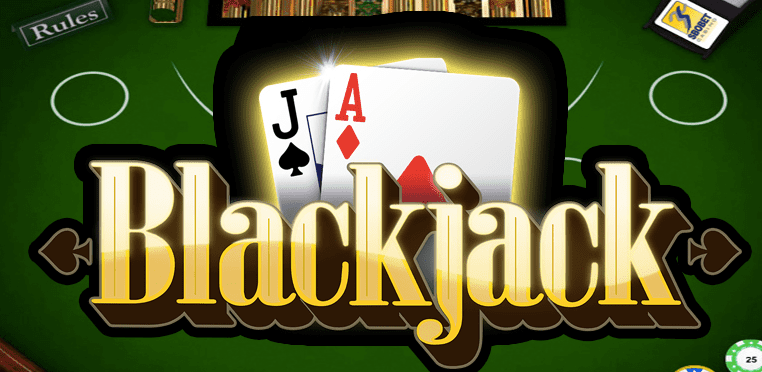
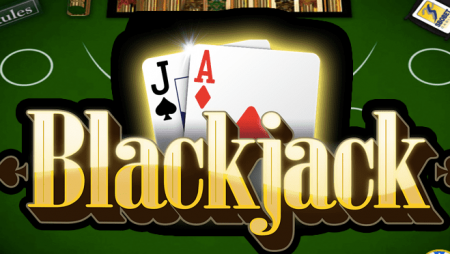 Мифы игры Blackjack
Мифы игры Blackjack В Сети доступно огромное количество информации, которая поможет достичь совершенства в блэкджеке: от «беспроигрышных» советов опытных гемблеров до своеобразной городской легенды, которая по разным причинам стала правдой для многих.
Если вы действительно хотите быть хорошим игроком, первое, что вам нужно сделать, это выяснить, что является правдой, а что нет. Представляем восемь самых известных мифов о блэкджеке и их опровержения.
Миф № 1: Цель игры — максимально приблизиться к 21
Самая частая ошибка новичков. Да, число 21 и блэкджек — синонимы. Одно время об этой игре даже был снят фильм под названием «Двадцать одно». Но помните: ваша задача — не подойти как можно ближе к 21, ваша задача — обыграть дилера казино!
Для этого вы должны набрать больше очков, чем дилер, либо добиться, чтобы у него случился «перебор». Почему это так важно? Потому что это фундаментальное правило стратегии блэкджека. Желание любой ценой приблизиться к 21 баллу в большинстве случаев приведет к «перебору» и в конечном итоге опустошит ваш банк. Помните, что чаще всего для победы достаточно 16 или 17 очков.
Миф № 2: Постоянно думать, что следующей картой дилера будет 10
Один из самых известных мифов о блэкджеке — всегда помнить о вероятности того, что следующая карта дилера будет 10. Многие люди считают это своего рода перестрахованием, поскольку в колоде слишком много карт, приносящих 10 очков (десятки, валеты, дамы и короли). Если следовать этой логике, то окажется, что если, например, у крупье есть девятка, то перевернутая карта обязательно будет десяткой. Таким образом, сумма его очков будет 19.
Полагаться на это — большая ошибка. В колоде из 52 карт 16 имеют значение 10. Таким образом, шансы крупье проиграть десятку составляют лишь 31 процент против 69 процентов. Так что лучше придерживаться базовой стратегии блэкджека, которая подскажет, что делать, на основе ваших карт и открытой карты дилера.
Миф № 3: Страхование ставок может сэкономить ваши деньги
Вы когда-нибудь задумывались, когда следует застраховать ставку? Правильный ответ — никогда! Помните, что это одна из худших вещей, которые вы можете сделать при игре в блэкджек. Страховка — это дополнительная ставка, которую игрок может сделать, если у дилера есть его первая открытая карта — туз. Если дилер набирает 21 очко, игрок теряет свою игровую ставку, но ему выплачивается страховка 2 к 1.
Выше уже было сказано, что шансы дилера получить следующие десять карт составляют 31%. Так что в большинстве случаев страхование ставок будет пустой тратой денег, хотя на первый взгляд может показаться довольно привлекательным предложением.
Миф № 4: «Картинки» выпадают одна за другой
Звучит смешно, правда? Однако есть достаточно игроков, которые считают, что за одной картой с изображением (король, дама, валет) обязательно последует другая. Здесь даже не нужно ничего доказывать — данное суждение ошибочно!
Миф № 5: Другие игроки за столом могут повлиять на вашу игру
Некоторые люди считают, что если другой игрок за столом принимает неверные решения, он нарушит игру и напрямую повлияет на их стратегию. Фактически, плохой игрок математически не влияет на результат даже в краткосрочной перспективе. Да, он может взять карту, которая может быть вам полезна, но может случиться и наоборот! Так что просто игнорируйте других игроков за столом и сосредоточьтесь на своей игре.
Миф № 6: Стоять на «мягких» 18 (туз и семерка)
Хотя 18 — хорошая рука, стоять с ней — не всегда лучшее решение. Если у дилера слабая рука (например, тройка, четверка, пятерка или шестерка), удвоение ставки может принести плоды. Конечно, этот ход не гарантирует вам 100% выигрыш, но шанс сыграть на слабой руке дилера — один из ключей к успешной игре в блэкджек.
Миф № 7: Вы должны избегать «перебора»
Это может показаться разумным, но вряд ли положительно повлияет на вашу игру. Такая стратегия выглядит излишне осторожной и значительно снижает ваши шансы на победу. Да, вероятность «перебора» с 12 на руках достаточно высока, но если вы категорически не возьмете карту в этой ситуации, то только увеличите преимущество казино.
Миф № 8: Результат в блэкджеке зависит только от удачи
Многие игроки считают, что выигрыш в блэкджеке зависит от удачи, и вы ничего не можете сделать, чтобы увеличить свои шансы на победу. Фактически, каждое решение, которое вы принимаете за столом, напрямую влияет на результат. Конечно, вы никогда не сможете предсказать, какая карта из колоды появится следующей, но знакомство с основными игровыми стратегиями, основанными на математических принципах, значительно улучшит ваши результаты.
Что ж, пора применить полученные знания на практике. Попробуйте свои силы за одним из столов для блэкджека в онлайн-казино из нашего списка.

